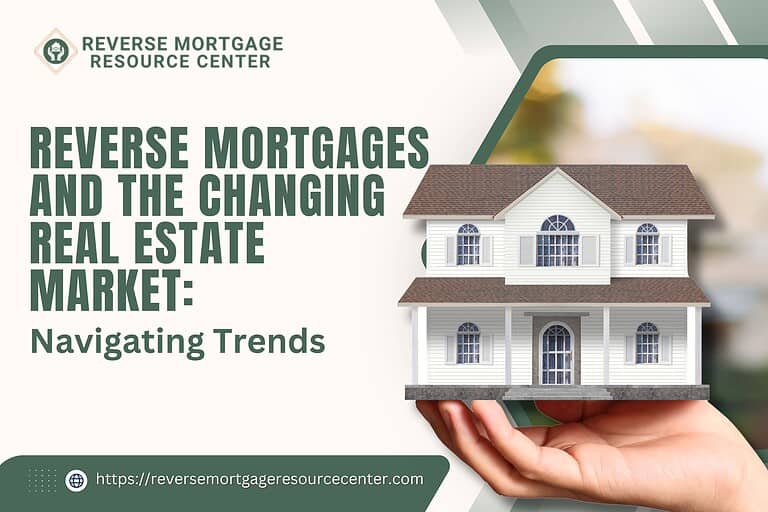Aging in Place with Confidence: Florida’s Reverse Mortgage Options
Aging gracefully is a universal desire, but for many, it is essential to age in place, particularly in a vibrant state like Florida. Florida, known for its beautiful weather, diverse culture, and retirement-friendly atmosphere, is home to a growing population of seniors who wish to remain in their homes as they age. To support this goal, a financial solution offers seniors the opportunity to stay in their beloved homes while enjoying their retirement years: reverse mortgages. In this article, we will explore the concept of aging in place with confidence in Florida and how reverse mortgage options can be a valuable tool for seniors looking to maintain their independence and financial security.
Understanding Aging in Place
Before we delve into the details of reverse mortgages, it’s essential to understand what “aging in place” means and why it’s such a desirable goal for many seniors. Aging in place refers to growing old in the comfort and familiarity of one’s home rather than relocating to an assisted living facility or nursing home. This choice allows seniors to maintain independence, emotional well-being, and a sense of community belonging.
Florida’s allure as a retirement destination is undeniable, with its sunny weather, cultural diversity, and various activities. It’s no wonder many seniors in the state wish to age in place, preserving their connection to the place they call home. However, as people age, their financial needs can become more complex, making it challenging to stay in their homes without extra support. This is where reverse mortgages come into play.
Reverse Mortgages: A Financial Lifeline for Seniors
Reverse mortgages are financial products designed to assist seniors in accessing the equity in their homes without selling their property. They are often called Home Equity Conversion Mortgages (HECMs) and are insured by the Federal Housing Administration (FHA). One of the key advantages of reverse mortgages is that they provide seniors with an additional source of funds, which can be especially helpful in funding healthcare expenses, home renovations, or daily living costs.
In Florida, where the cost of living can vary greatly depending on the location, a reverse mortgage can make all the difference in allowing seniors to maintain their lifestyle and age in place with confidence. Here are some key elements of reverse mortgages:
How Reverse Mortgages Work
A reverse mortgage is essentially a loan that allows homeowners aged 62 and older to tap into the equity they’ve built in their homes over the years. The homeowner can receive the loan proceeds in various ways, including as a lump sum, a line of credit, or fixed monthly payments. One significant advantage is that these funds are tax-free, providing retirees an additional financial safety net.
No Monthly Mortgage Payments
Unlike traditional mortgages, reverse mortgages do not require monthly mortgage payments. Instead, the loan is repaid when the homeowner sells the home, moves out, or passes away. This alleviates the financial burden on seniors, as they can live in their homes without the stress of regular payments.
FHA Insurance
The FHA insures reverse mortgages, offering borrowers security and peace of mind. This insurance ensures that borrowers will continue receiving loan payments even if the lender experiences financial difficulties. It also protects borrowers from owing more than the value of their homes when the loan becomes due.
Florida’s Reverse Mortgage Landscape
Florida’s unique demographic makeup, characterized by a large retiree population and a diverse housing market, makes it an ideal state for exploring reverse mortgage options. Here are some key factors that make Florida’s reverse mortgage landscape distinct:
High Home Equity
Florida is known for its real estate market, and many seniors in the state have substantial home equity. This provides a strong foundation for considering a reverse mortgage, as the more equity you have, the more you can access through a reverse mortgage.
Diverse Housing Options
Florida offers a wide range of housing options for seniors, from beachfront condos to suburban homes and retirement communities. The flexibility of reverse mortgages means that seniors can choose the living arrangement that suits them best and still enjoy the benefits of this financial tool.
Tax-Friendly Environment
Florida is famous for not having a state income tax, which can be a significant financial advantage for retirees. With a reverse mortgage, seniors can access funds without worrying about state tax implications.
Reverse Mortgage Eligibility in Florida
To benefit from a reverse mortgage in Florida, there are specific eligibility criteria to meet:
Age Requirement
Borrowers must be aged 62 or older to qualify for a reverse mortgage. This age requirement is consistent across the United States.
Homeownership
The property on which you seek a reverse mortgage must be your primary residence, and you must have a substantial amount of equity in the home.
Financial Assessment
Lenders will assess your financial situation, including your ability to cover property taxes, insurance, and maintenance costs. This ensures that you can continue to meet these obligations while enjoying the benefits of a reverse mortgage.
Advantages of Aging in Place with a Reverse Mortgage
A reverse mortgage in Florida can provide numerous advantages for seniors who wish to age in place with confidence:
Financial Security
The additional funds from a reverse mortgage can help cover healthcare expenses, home modifications, and other daily living costs, providing peace of mind for retirees.
No Monthly Mortgage Payments
Not having to make monthly mortgage payments reduces financial stress and allows seniors to focus on enjoying their retirement years.
Tax-Free Funds
The funds received through a reverse mortgage are not considered income and are not subject to federal or state income taxes.
Stay in Your Beloved Home
A reverse mortgage enables you to remain in your cherished home, maintaining your connection to your community and the lifestyle you love.
Flexible Loan Options
With various payout options, you can tailor your reverse mortgage to meet your unique financial needs and goals.
Downsides and Considerations
While reverse mortgages offer substantial benefits, it’s essential to consider potential downsides and take them into account when making this financial decision:
Accruing Interest
Interest on a reverse mortgage accrues over time, increasing the loan balance. This can reduce the amount of equity remaining in your home.
Impact on Heirs
When the homeowner passes away or moves out of the home, the loan becomes due, and the heirs must decide whether to sell the home, pay off the loan, or refinance. This decision can have financial implications for the heirs.
Home Value Fluctuations
The housing market is subject to fluctuations, and your home’s value changes can impact the amount of equity remaining in your property.
Finding a Reputable Reverse Mortgage Lender in Florida
Selecting a trustworthy lender is crucial in securing a reverse mortgage in Florida. To ensure you make the right choice, consider the following:
Research Lender Reputation
Look for lenders with a strong reputation and a history of excellent customer service. Reading reviews and seeking recommendations can be helpful in this regard.
Consult with a HUD-Approved Counselor
Before committing to a reverse mortgage, consult with a Department of Housing and Urban Development (HUD)-approved housing counselor. They can provide valuable insights and ensure you understand the terms and implications of the loan.
Compare Loan Offers
Shop around for the best loan offers. Different lenders may provide varying terms and interest rates, so comparing and choosing the one that best meets your financial needs is essential.
REVERSE MORTGAGE RESOURCE CENTER ~LIVE LIFE ON YOUR TERMS~
Our Lending Team has been serving our clients since 2004. We are passionate about serving our clients with integrity to help them achieve their financial goals.







